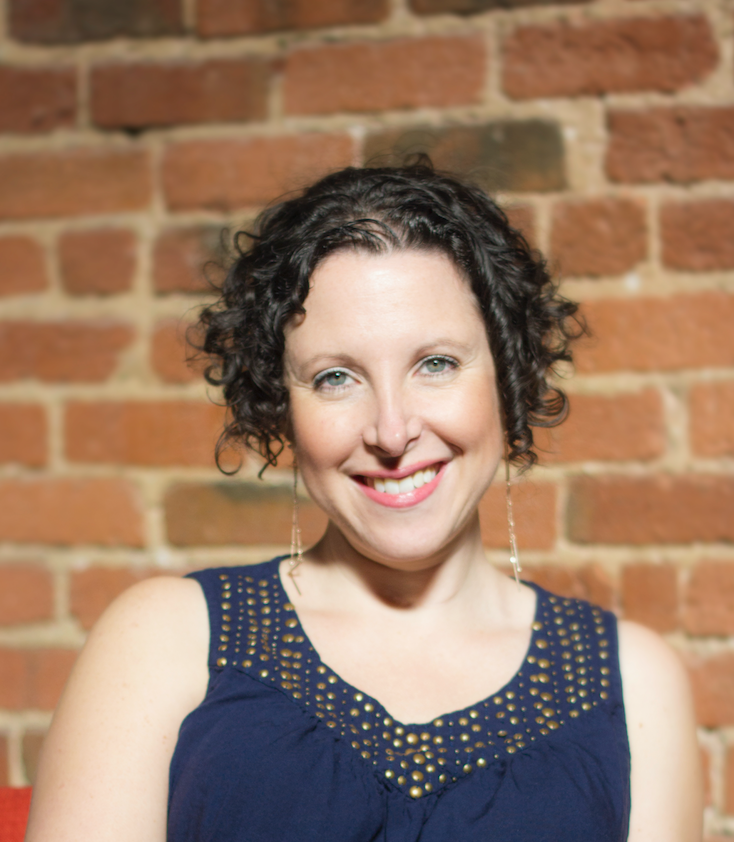Yesterday my husband Jason and I spent the afternoon with our toddler, Sawyer. It was the day before another big trip to St. Louis, and we were happy to be together, grateful to my brother for taking the closing shift at our coworking space, Covo, allowing us to have a school night to ourselves, and melancholy about my upcoming trip.
How do we want to live our lives?
I’ve been teary and introspective for the last few days, possibly due to weaning myself off of my anti-anxiety med Cymbalta again, possibly due to having a little bit of extra time on my hands, possibly because 2018 was really damn hard and I am desperate to control better for those challenges in this new year.
I shared with Jason a question I’ve been thinking about of late. “How do we want to live our lives?” To me this question is fraught with worry. I want to get it right. I want my life to matter. I want to help people and affect change. I don’t want to squander this incredible gift that is life. But as I dug into the question, I realized there’s another reason why I push myself hard, achieve a lot, take stock of and celebrate my results, keep moving, and don’t let myself stop and think.
I’m terrified of inertia. I’m scared that if I let myself have smaller, less sweeping goals, I will stop doing anything. At all. Stop. Moving. Entirely.
I’m terrified of inertia. I’m scared that if I let myself have smaller, less sweeping goals, I will stop doing anything. At all. Stop. Moving. Entirely. Fall into a deep depression and waste the rest of my life. Halt any sort of forward momentum, perhaps initially by choice and simply to luxuriate in the opportunity to slow down, but ultimately to find myself petrified, a useless, meaningless pillar of salt.
In an age of previously unheard of self-determination, luxury, and convenience, we also have an all-time record high of anxiety, depression, and prescriptions. Coincidence? I think not. I think it may be a whole lot of really fortunate people trying to do good, do well, and being really tough on themselves not to waste the opportunities they’ve been given.
Jason said his goal is financial and mental health and freedom. I added physical health, because without that all the rest is useless or impossible. Financial health and freedom. Mental health and freedom. Physical health and freedom. It sounds good but I don’t know if that is enough. I think there needs to be a service to others component. Or something along those lines. Impact to those less fortunate.
I put this question out to the world and it seems I’m not the only one to wonder. I got some pretty terrific responses, along with several along the lines of, “If you’re asking the question you’re already doing enough.”
Where is the line between terrific self-care and obnoxious self-absorption?
I asked the following question, as an offshoot to “What does a life worth living look like?” I asked, “Where is the line between terrific self-care and obnoxious self-absorption?”
To be honest, I spend very little time on reflection and allowing my mind to wander. I rush from task to task and in down moments I read a book, play a video game, or watch TV. Introspection can be scary and dangerous – what if we don’t like what we find? But sometimes we hit a crossroads where it’s critical to forward movement and scary as hell.
My friend B. wrote, “I don’t see one having to do with the other. You can be horrible at self-care and great at being obnoxiously self-absorbed, as well as the opposite. If you’re concerned about self-care turning into OSA, I would say once you have consistently stopped showing concern and care for others through words and actions, and stopped actively empathizing with them, you have probably crossed the line into OSA. I’m sure there are other signs.”
N. Responded, “Self awareness is all that I’ve come up with. It’s vague, but I think you can feel it personally, yanno? Have you been making space for the people you love? Have you been flinching away from vulnerability? Have you been rejecting healthy challenges in the name of ‘self-care’? It’s such a subjective issue, because everyone needs a different balance of self-care and of giving and hard work (personally and professionally).”
D. wrote, “What’s enough? What you do in the moment is enough. Let it be enough. I know you’re a person who puts service as the ‘N’ on her compass. Some days you may not walk 20 miles in that direction and some days you may go a bit NE or even South, but if you accept that, and accept yourself, the progress you make will still honor you as it honors others.”
A. Shared, “The line is exactly at the spot where you feel great and don’t feel compulsed to tell every person about it every day.”
Whether you see yourself as an integral part of the whole or see yourself as the whole.
Or, perhaps my favorite, M. Wrote, “Whether you see yourself as an integral part of the whole or see yourself as the whole.”
Short term rights and wrongs are easy, but long term seems nearly impossible to foretell.
I keep thinking about this idea of doing more good than bad. And I get stuck in a loop, because often the actions we take to help end up hurting. For example, in San Francisco a nonprofit launched to provide nice new tents to the indigent population. Great idea, to provide urban camping solutions to the cities neediest. Another nonprofit began a needle exchange program, providing clean needles to help stop the spread of HIV and AIDS. Another great and noble goal. But people didn’t turn in their dirty needles to get clean needles, and so the needle exchange stopped requiring that used needles be turned in in order to get clean needles. At this time, the result of these two wonderfully intentioned causes means that there are now tens of thousands of used needles in hundreds of tent encampments all over the city, making these tents one of the most dangerous places to live in the country. I also look at clearly atrocious acts like WWII, where so many of my people were exterminated. And the number of healthcare advances that came out of the war, like mass production of penicillin, invention of morphine and use of plasma, that have saved over 200 million souls due to penicillin alone. And that doesn’t take into account the technological or scientific advances. Short term rights and wrongs are easy, but long term seems nearly impossible to foretell.
These mental arguments send me down the path of going into seclusion and becoming a Buddhist monk, to ensure that I don’t hurt anybody else. But it doesn’t really help others either, and that way seems rather selfish. Maybe the answer is just to touch one life positively and do your best not to hurt others. Or to try. Try as hard as you can, to do a lot of good, and hope for the best. I wish I had an conclusive answer here, but I don’t. What do you think?


